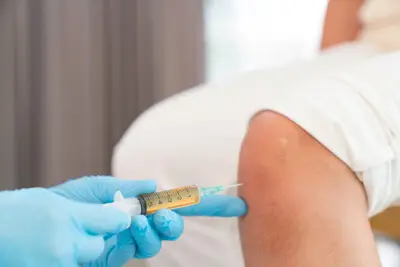| Item | Price | Qty | Total | |
|---|---|---|---|---|
 Loading Cart...
Loading Cart...What is PRP?

What is PRP?
Platelet-rich plasma (PRP) is a concentration of blood platelets. PRP injection therapy is used as a form of regenerative medicine to stimulate healing of injuries and help treat disease.
How is PRP Prepared?
To prepare PRP, a blood sample is taken from a patient and spun in a centrifuge. The centrifuge separates the blood into Red Blood Cells, Platelet Poor Plasma, and Platelet Rich Plasma (PRP).
Plasma is the liquid component of blood, and platelets (thrombocytes) are the healing components of the blood that make blood clot. Injecting the platelets into specific areas stimulates “activation of the platelets” - which in turn starts the healing cascade.
Growth Factors and Healing Properties
Growth factors are signaling molecules that are released from activated platelets over the following days of injection. By binding to cell receptors, they trigger biological responses that include cell proliferation (growth in number), differentiation (change from one cell type to another), and tissue repair.
Types of Growth Factors
Types of growth factors —and some of their functions—include:
Vascular endothelial growth factor (VEGF)
Vascular endothelial growth factors encourage angiogenesis (new blood vessel growth) and vessel permeability. VEGFs also aid with the cellular division of endothelial cells.
Fibroblast growth factor (FGF)
Fibroblast growth factors encourage endothelial, mesenchymal, fibroblast, and osteoblast cell proliferation.
Platelet-derived growth factor (PDGF-aa, PDGF-ab, PDGF-bb)
Platelet-derived growth factors help to form glia, connective tissue, and muscle cells. They also help to proliferate bone cells and better collagen synthesis.
Epidermal growth factor (EGF)
EGFs promote cellular division, aid in wound healing, encourage the differentiation of epithelial cells, and promote angiogenesis.
Transforming growth factor (TGF-ß1, TGF-ß2)
Transforming growth factors help with the formation of cell-supporting extracellular matrixes and manage bone cell metabolism. They also positively impact immune cells, encourages type 1 collagen synthesis, and promote angiogenesis.
How is PRP Used in Regenerative Medicine?
Used in PRP injections, growth factors—as well as proteins and cytokines (other signaling molecules)—promote the growth of tissues, such as:
- cartilage
- tendon
- ligaments
- joints
- muscles
As PRP is made from the patient’s own blood, there is no risk of the body rejecting it. Studies have shown that PRP can be used to address many different types of health issues, including but not limited to:
- fine lines
- thinning hair
- dry eyes
- intervertebral disc degeneration pain
- erectile dysfunction
- osteoporotic fractures
- injured ligaments and tendons
- non healing wounds
- excessive scarring


